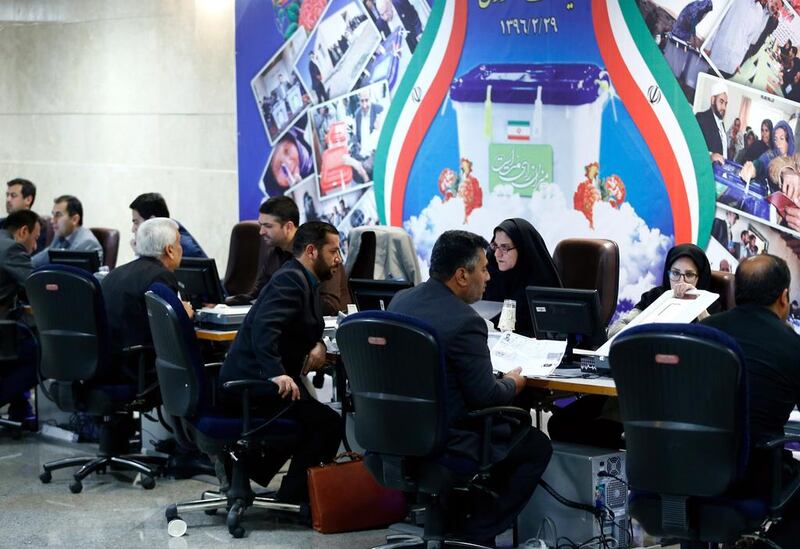Iran’s presidential election is approaching. This will be the 12th presidential contest since 1979. The period for registration ended on April 15, and candidates will begin campaigning on April 28. The election itself will be held on May 19.
Several candidates appear to be both popular and controversial in Iran’s political establishment, including Mohammad Bagher Ghalibaf (mayor of Tehran), Ebrahim Raisi, Mahmoud Ahmadinejad, Hamid Baghaei and the incumbent Hassan Rouhani. Who will win?
Any scholar who has studied Iran for a long time knows that one of the issues that highlights the complexity of Iran’s political establishment and its elections is unpredictability. Like many who were mistakenly certain that Donald Trump would not become US president, many so-called Iran experts and policy analysts previously predicted that Mr Ahmadinejad and Mr Rouhani would never be president of Iran.
The unpredictability of political affairs and the outcome of the presidential elections partially comes from the contradictions in the instructions that the supreme leader of Iran, Ayatollah Ali Khamenei, gives in private and in public.
In addition, the question of whether the overwhelming majority of Iran’s silent middle class will vote or not is a crucial factor. Previously, fraud in elections has also played a role in their outcome.
Nevertheless, there exists one certainty based on historical records. Since 1981, every Iranian president has been re-elected, and every president has served the maximum two consecutive terms permitted by the constitution.
While almost anyone is allowed to register for the presidential election, the candidates will have to go through a strict vetting process by the Guardian Council, a clerical body consisting of 12 members. The members of the council are directly or indirectly appointed by Mr Khamenei. On April 28, the council will announce who is qualified to run.
The council makes sure that the candidates have been loyal to the revolutionary ideals of the Islamic Republic as well as the supreme leader.
If a candidate has shown any shred of defiance in the past, they will be disqualified from running for election even if the individual was the founding father of the Islamic Republic, such as the late Ali Akbar Rafsanjani who was disqualified in 2013.
After the controversial 2009 elections which sparked popular protests, the Guardian Council became more strict in the approval process for a candidate. Even Iran’s religious reformists have little or no chance of passing the vetting procedure.
Some candidates, including women or religious and ethnic minorities, will be disqualified with no legitimate reason provided.
In other words, the candidates who get to run have the blessing and approval of the supreme leader and his inner circle.
Within this limited spectrum, there are several major political factions including the Popular Front of Islamic Revolution Forces, the Moderation and Development Party, The Front of Islamic Revolution Stability and The Reformists’ Policy Making Council.
It is also worth noting that many candidates run to rally support behind a particular faction. The elections will probably be contested by the Islamic hardliners, Mr Rouhani’s moderates and the favourite candidate of the Revolutionary Guard Corps.
Although the IRGC is not allowed to meddle in the elections, it has always played a significant part. So far, its favourite candidate appears to be Mr Raisi who was appointed by the supreme leader to be the chairman of a multi billion-dollar conglomerate.
For many Iranians, this election represents a choice between bad and worse. Mr Rouhani still appears to have more popularity than the other candidates.
For Mr Khamenei, either Mr Rouhani or a hardline candidate (such as Mr Raisi) will be good choices. Mr Khamenei needs the moderates to enhance Iran’s legitimacy abroad, bring in revenue and use their shrewd diplomatic skills.
He also needs the hardliners to suppress opposition, more forcefully advance Iran’s regional ambitions and export Iran’s revolutionary ideals.
Dr Majid Rafizadeh is a leading Iranian-American political scientist and president of the International American Council





